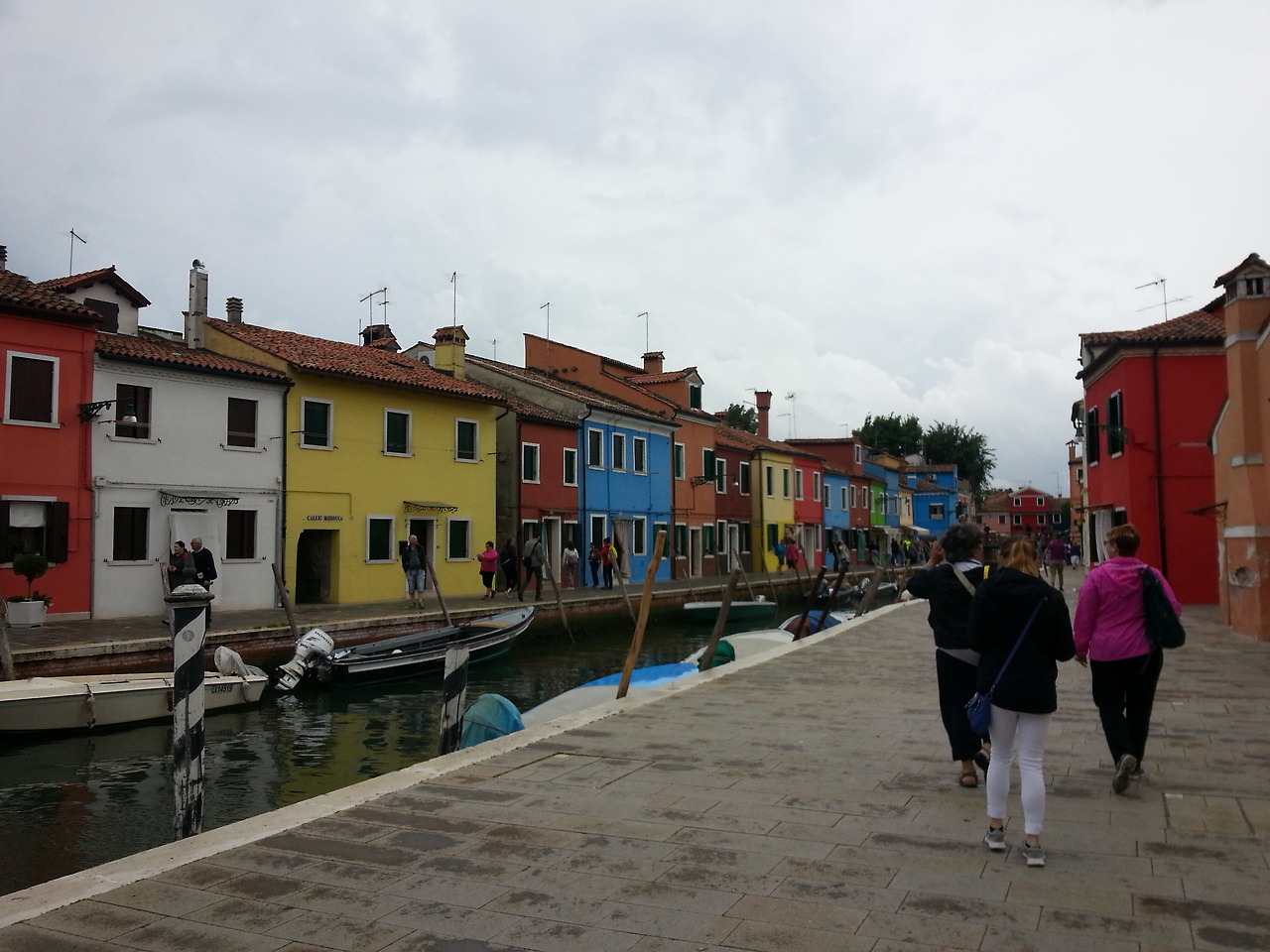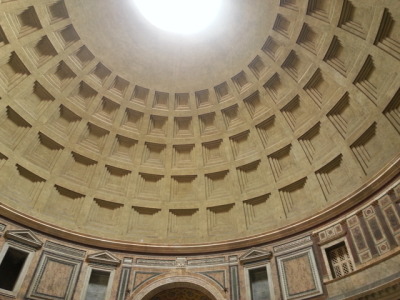1.A brief description of my STEP Signature Project:
My STEP project was to participate in a study abroad trip, Psychology and Culture in Europe, through the psychology department. The program lasted from the 10th-29th of May, with 5 program days in Rome, 4 program days in Venice and 7 program days in London. In each place we visited museums related to the history of treatment for the mentally ill in the region, as well as sites of religious, political and artistic cultural heritage, and had both during-trip and afterwards journal entries and reflections.
2. What about my understanding of myself and my view of the world was transformed by completing my STEP Signature Project:
This project was very transformative in regards to my school and professional goals, but also personally. I think the biggest change was in the ways I didn’t expect. Because everywhere we went, I saw things and felt things that I didn’t expect! Reading about a location is one thing, but it’s another to see it, and really feel the cultural context that surrounds the history that you learned. Because that context will be completely different, and it matters! In particular, seeing the impact and shared history of the church and mental health care in Italy, and the lack of deinstitutionalization in England, were important to my educational and career goals, while seeing the places of worship we visited affected me personally, too. I also was changed by experiencing the overall cultural differences in each place.
I also found that I’m not a fan of flying, but the far travel wasn’t as scary as I thought it would be, even with language barriers! I’d actually like to go again someday, or to somewhere new.
3. Events during my STEP Signature Project that led to this transformation:
Professionally and academically, seeing the three major mental hospital museums in particular was eye-opening. There were actually many similarities between how treatment of the mentally ill developed in Italy, with Basiliga’s law, and here in the states. Their process of deinstitutionalization was similar to ours, at the end in particular. However, there was a vital difference: The institutions in both Venice and Rome were centuries older than anything in the USA. Not only learning that the island of San Servolo was a nunnery before becoming a hospital, but actually standing in the chapel there myself, was completely eye-opening. There was also a storied history in Rome, and our guide at the Laboratorio de la Mente had stories of illegitimate children of politicians and such who were sent there hundreds of years ago. There was even a school for such children established there, and a program that would have them released at 14.
Being at Bethlem hospital in London was completely different, since it’s still open and in active use today. Seeing another way of handling mental treatment moving forwards in the 21st century that didn’t involve deinstitutionalization was very impactful to me. The English system is completely different than what we have in the states, but it really did seem to be working well for them nevertheless. I think it’s important that I remember that my field is a relatively new one, and there are still open questions and paths that can be explored when looking for the best ways to treat mental health in a society. I’ll never be able to become complacent, and certainly must keep in mind that I will never have all the answers… but that’s what makes it an exciting area to study for me! I think it’s important to work as hard as we can to try and find the healthiest solutions for everyone.
Another incredible thing I saw that changed me as a person, I feel, was the Pantheon. It’s famous, but the whole experience was still changing for me. To see something that old in a public square was so incredible on its own, but going in was something even beyond that! This was at the beginning of our trip, on the first program day, so I had yet to see the vast array of Basilicas, synagogues, churches and cemeteries that we would visit, all of which were old, storied, and/or beautiful enough to be incredible on their own. All of those places would cement and develop the feeling that I first had there, at the Pantheon, but that first moment stays with me most of all still. When we walked inside, and everything was still so lovely and maintained, as our guide explained how it was an active church still; I was amazed! I had known it before, of course, but I guess I wasn’t prepared for the minutia still there; the seats and schedules. The Pantheon wasn’t a ruin at all. It was still in use, just as active as my brick church at home. I had a similar feeling in Saint Paul’s Cathedral in London. We walked up to the whispering gallery in the dome, and looking down at this incredible building full of ancient art (and that even was ancient art, in it’s very carved walls), I saw stacks of tables and books in one of the alcoves. It must seem silly to someone who attends regular service at these places, but for me, it was something I only really felt when I saw it- how completely different our spiritual lives were I expected, but it was how similar they were that was the surprising feeling.
Lastly, there were little things throughout the journey, that weren’t big monuments or planned excursions, which will nonetheless stay with me and have certainly affected my worldview. Little things about how people lived, like the patches of uncut grasses and wildflowers dotted all around London, the way people filled their yards in its suburbs with gardens rather than plain lawns, how they did fast food in Rome, with places that cooked lots of long bread loaves, topped them all differently, then sold it by weight! Nozones! Even the public transport in each place was an amazing experience. Before I left, I thought it would be scary, or a hindrance, but in hindsight even the various mishaps were all something to learn from. And I still cannot believe that there are people for whom regular boat rides between tiny islands on a Vaporetto is just public transport, like a bus! Even bad things, like hearing our guide speak openly about the tension regarding tourism in Venice, gave me an unexpected view of the city. These things, stuff you don’t even think of before going, were definitely an impactful part of my study abroad experience. I never could have predicted it, but that’s what makes it so important, I think. Everyone’s “normal” is so different, no matter where you go, in ways you’ll never predict. I think that’s one of the beauties of human life, and I hope I get to experience more cultures in this way, some day.
4. How this transformation was important to me and my goals:
Overall, although it may be cheesy to say, this trip is something I’ll always remember. I have seen so many incredible things that I didn’t really think I ever would get to, and undergone new challenges I didn’t predict either! Professionally, I learned even more than I thought I would. Whether it was truly feeling the connections of Christian spirituality and mental health in Italy through the ages, or seeing a modern, working healthcare system that still incorporates mental hospitals, I have gained so much knowledge of different ways of treating people, both through the ages and across cultures, that I’m sure will stay with me as I learn and grow in practice here in the US. And on a personal note, it was amazing to see all of the different monuments, both famous and obscure, and to see a history that is so different from the USA’s one. The vast differences in the churches in both Italy and England will definitely stay with me, especially how many precious and ancient places were still active. It was also transformative to live in such unique cities for a brief time, to feel how life is different there. The things I’ve learned on this trip will stay with me, I think, and I hope I have the chance to do it again someday.



